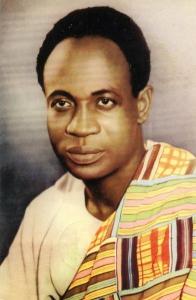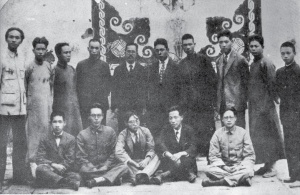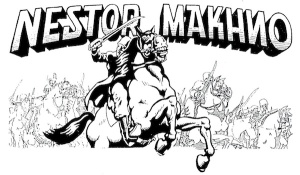by Tokologo African Anarchist Collective (TAAC)
Published in “Tokologo: Newsletter of the Tokologo African Anarchist Collective”, numbers 5/6, November 2015
CONTRIBUTORS: LUCKY, MTHAMBEKI, NKULULEKO, NONZUKISO, PITSO, SIXOKA, WARREN
 Ghana, West Africa, was a British colony called “Gold Coast” until 1957. It became the first independent country in “black” Africa after reforms and struggles in the 1940s and 1950s. The new president, the brilliant Kwame Nkrumah, and his Convention People’s Party (CPP), had fought for independence. Now they aimed at major changes in the society, even speaking of socialism. And Nkrumah proposed a united African government for the continent: Pan-Africanism.
Ghana, West Africa, was a British colony called “Gold Coast” until 1957. It became the first independent country in “black” Africa after reforms and struggles in the 1940s and 1950s. The new president, the brilliant Kwame Nkrumah, and his Convention People’s Party (CPP), had fought for independence. Now they aimed at major changes in the society, even speaking of socialism. And Nkrumah proposed a united African government for the continent: Pan-Africanism.
But by the mid-1960s, hopes were fading. There were good reforms in education and services and self- respect for Africans that helped remove colonialism’s damages. But the CPP has become a dictatorship, with a personality cult around Nkrumah. Unions and struggles were suppressed. The economy was in trouble. A new elite hijacked independence and resources. When the military seized power in 1966, people celebrated in the streets. Today Ghana is one of the poorest African countries.
What went wrong and what can we, anarchists in Africa, learn from this experience?
Continue reading →

 Ghana, West Africa, was a British colony called “Gold Coast” until 1957. It became the first independent country in “black” Africa after reforms and struggles in the 1940s and 1950s. The new president, the brilliant Kwame Nkrumah, and his Convention People’s Party (CPP), had fought for independence. Now they aimed at major changes in the society, even speaking of socialism. And Nkrumah proposed a united African government for the continent: Pan-Africanism.
Ghana, West Africa, was a British colony called “Gold Coast” until 1957. It became the first independent country in “black” Africa after reforms and struggles in the 1940s and 1950s. The new president, the brilliant Kwame Nkrumah, and his Convention People’s Party (CPP), had fought for independence. Now they aimed at major changes in the society, even speaking of socialism. And Nkrumah proposed a united African government for the continent: Pan-Africanism.
